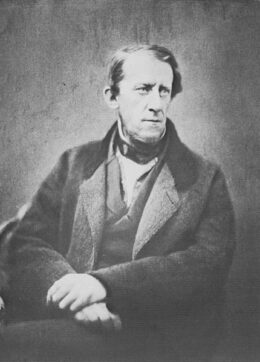Printed
28 pages
Author(s)
Casperl wird reich
Schicksalsdrama in vier Aufzügen
The genre indicated in the subtitle, “ein Schicksalsdrama” (fate drama), refers to a dramatic form based on the play Die Schuld (The Fault, 1813) by Adolf Müllner (1774-1829), which had the same subtitle. As was his habit, Pocci tackles it in a satirical manner: he mocks the trend of black romanticism and its ghosts, witches and buried treasures. He also ironically mentions his former friend Justinus Kerner (1786-1862), a Romantic writer inclined to mysticism and occultism and with whom Pocci exchanged extensively about philosophical and theological problems. And because Pocci’s play is a puppet play, the reference to the great necromancer Faust was compulsory: it is by evoking this leading figure that Casperl will make the ghost appear, and the magic formula from Faust’s plays - perlike - is also quoted.
A man gets rich through occult means
Unable to sleep, Casperl complains about his lot in life and even says that he is ready to appeal to the spirits, following the example of Faust, when a headless ghost appears in front of him. The ghost asks him to save him from hell by performing the necessary rites at midnight at the gallows. In exchange, Casperl will get hold of the treasure that the ghost buried at this location when he was still a bandit. The next day, Casperl, who has forgotten the ritual words, asks the witch Moosmayerin to help him: she gives him Holofernes’ magical belt. In the next scene, Casperl has become rich, but he considers that the money shouldn’t be used to pay his debts and he sends his creditors away with injurious words. When a police officer comes to arrest him, he manages to lock the police officer inside his house and goes to the tavern. When he returns to his place, he discovers that the police officer has hung himself by accident with the rope with which he tried to slip away. Casperl is thrown in prison, but he is freed by the ghost, who tells him that the police officer has not died and that he has resumed his work.
First performance
Münchner Marionettentheater
Publications and translations
Franz Pocci: Lustiges Komödienbüchlein, fünftes Bändchen. München, Ernst Stahl, 1875
Franz von Pocci: Lustiges Komödienbüchlein 5. Editio Monacensia, München, Allitera Verlag, 2010
